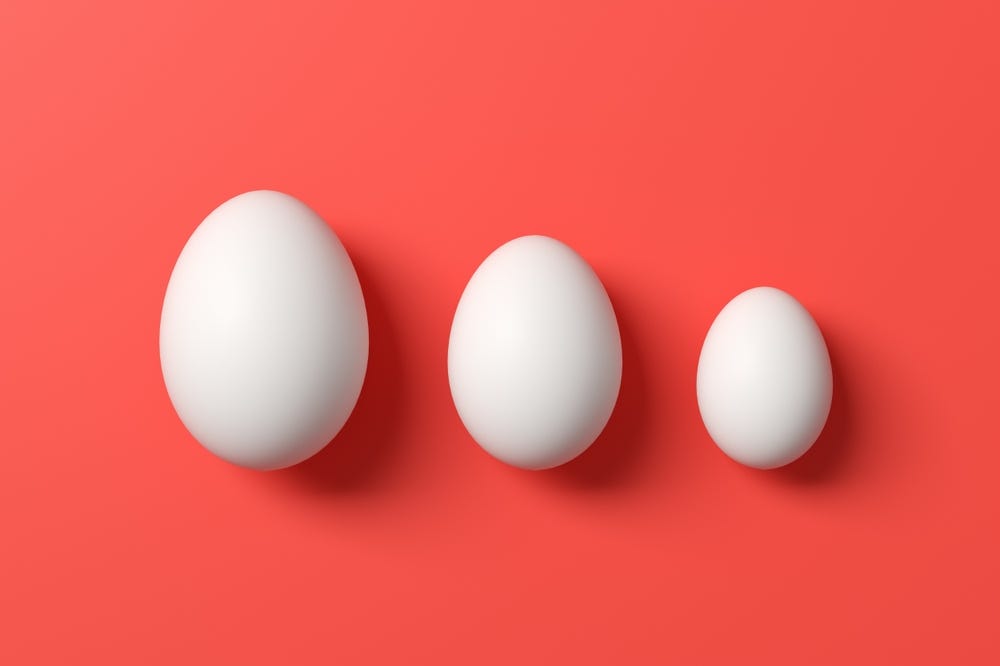If you like eggs, eggflation has crimped your habit. This recent Nerdwallet headline speaks to the baker and egg taco maker. Protein hounds should rotate to powder.
The spike in egg prices represents a larger problem. Inflation affects our consumption, and if our incomes don’t keep up, we have to cut back. Inflation has been a problem for the last three years, but the rate of increase has slowed significantly in the past few months.
The Lesson
In everyday language, we speak about “dollars” and “interest rates.”
You may save a nominal $1,000 per year for 10 years at a nominal interest rate of 10%. The amount in your savings account will be $15,937.42. But what would those nominal dollars “really” buy? This is how inflation impacts our lives.
Economists add the word “Nominal” to distinguish everyday prices and interest rates from purchasing power. The purchasing power of dollars is “Real.” $100 in 1984, and $1 gallon of gasoline would have bought 100 gallons. $100 in 2024, and $4/gallon gas fuels you with 25 gallons. Inflation in the price of gas lowers the purchasing power for gas.
Inflation is mostly out of our control. It implicitly puts pressure on income growth and investment returns to maintain a living standard.
Good News and Bad News
Egg prices jumping to $3.20 per dozen from $2.50 per dozen last year hurt wage-constrained egg lovers. Consuming less, finding an egg substitute, or taking money away from other spending is the bad news.
The good news is the inherent inflation in the large basket of items that defines the Consumer Price Index is up 3.2% over the last year. Eggflation is diversifed across the budget. Nominal wage growth is up about 4.5% over the last year, so real purchasing power is up, if you are average.
You are not average. You are here.
Your income prospects, investment performance, and preferred spending categories help determine your purchasing power. They contribute to your financial well-being and happiness. In the later days of the Start Here course, I will present investments that give you the best chance to hedge inflation.
Day 13 is about inflation, interest rates, and how they affect consumption. The readings and slide deck follow below.





